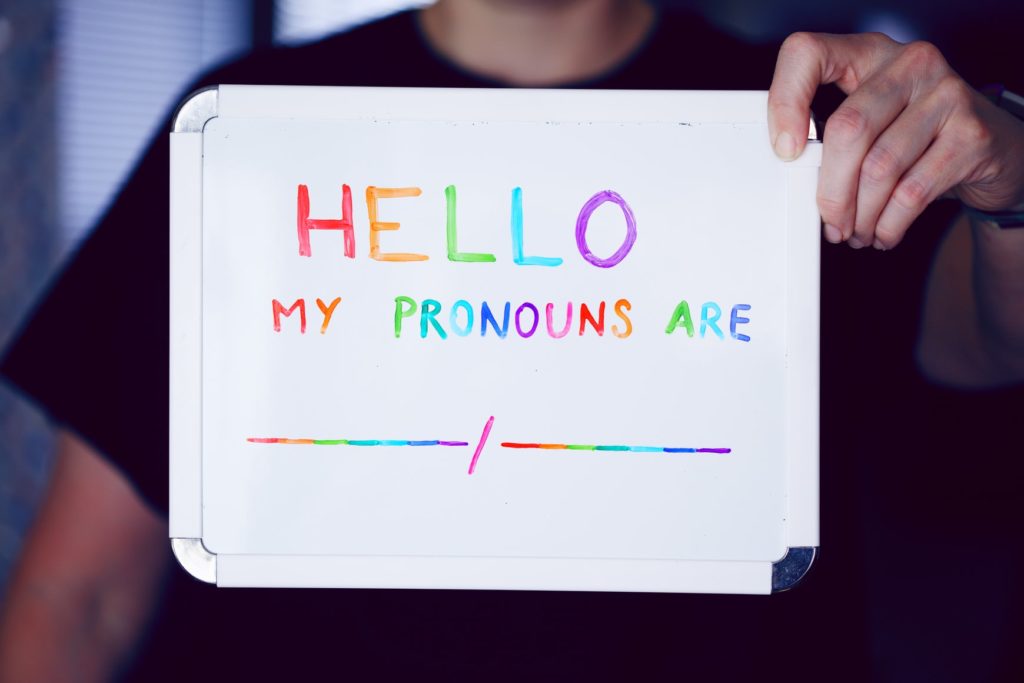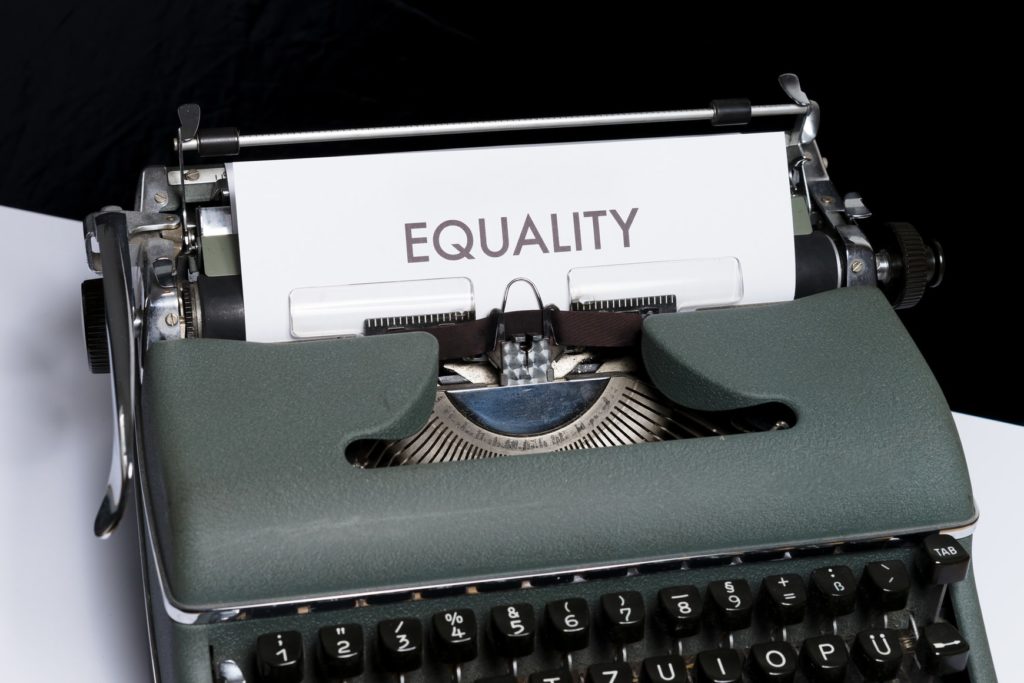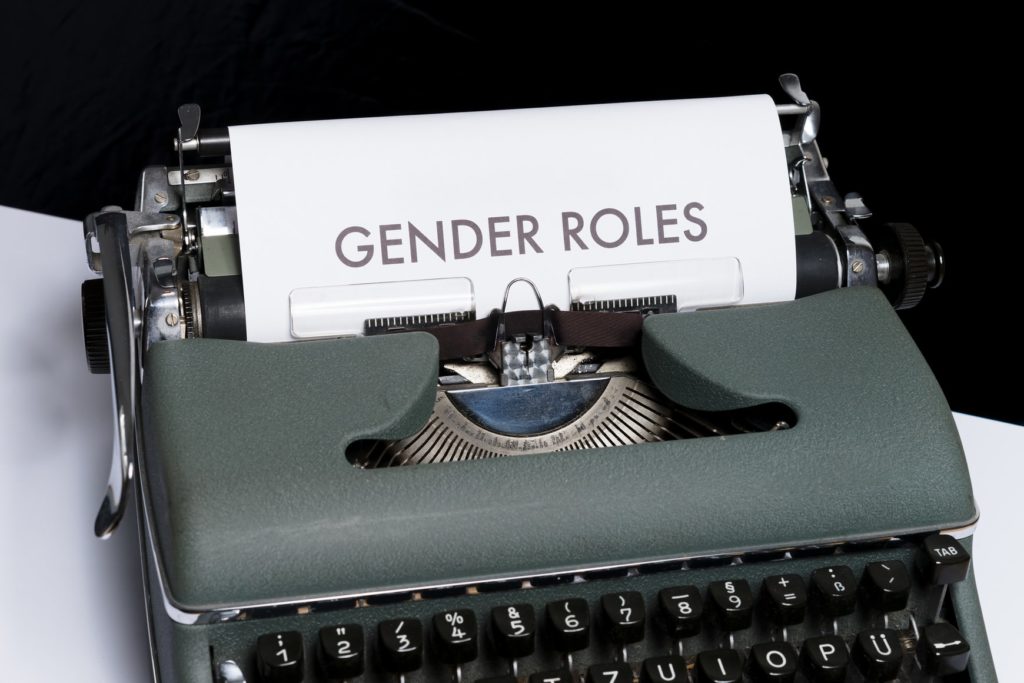Language is an important part of how we and society shape our views. If I say: that person is so beautiful, yet hysterical, who do you think of? If I say: they are strong, aggressive and cocky, who comes to mind? I bet you thought of a woman first and then of a man. We tend to use different adjectives to describe people of different genders. Often, these adjectives have negative connotations for women. A woman is bossy while a man is confident. Gender bias and stereotypical gender roles are a big part of many languages and fuel discrimination, sometimes unintentionally, but also occasionally intentionally.
Grammar shapes our thinking
Languages all differ in the way they make us perceive gender. There are genderless languages, neutral languages, and gendered ones. 38 percent of people worldwide speak a gendered language. Studies have shown that countries that have highly gendered languages also have a higher gender inequality. In contrast, genderless languages and neutral languages such as Finnish (which don’t use any gendered pronouns) have higher rates of equality.
Then there is also the generic masculine that many languages implement. Many words are male by default, descriptors for a group of mixed genders are male. A good example here is Spanish. If there is a group of 10 women and 1 man the description word used will be the masculine. While people will argue that the generic masculine means it’s neutral, it nonetheless reinforces stereotypes of men being more valuable or important than women and removes women or non-binary people from people’s thoughts as they are more likely to think of a man in that circumstance.
What we say matters
Not just grammatically gendered languages influence gender inequality, also the words we use have an impact. For example: In english we call a man Mr., but for a woman we use either Ms. or Mrs. depending on her marital status. Doesn’t that suggest that the status (or if you take it further, the worth) of a woman changes depending on whether she is married or not? It doesn’t do that for man, so why do we have to differentiate for women?
Sometimes, we don’t even think about what words or expressions we use and how they might fuel inequality and discrimination. Have you ever said one of these expressions: “Don’t be a girl about it” or “You cry like a girl”? Or maybe you have used “That’s so gay” as an insult. You probably have said something along the lines of “That takes balls” as a compliment for being brave while simultaneously saying “What a pussy” to describe weak behavior. All these expressions are so ingrained in us that we don’t give them much thought, but they all subconsciously fuel inequality as we keep perceiving feminine attributes as weak and less than while male attributes are seen as strong and powerful.

Job inequality
Job descriptions have gotten a lot better, but many jobs still use gendered wording in their advertisements. This leads to underrepresentation of women in traditionally male-dominated fields as they do not see themselves represented in the respective field. Further, once a woman holds a leadership position she is held to a different standard and her style of leadership is dissected differently than that of a man. Taking it back to the intro: A woman is bossy, a man is confident. We tend to use communal terms for women and power terms for men which consequently leads to people assuming men are more capable of holding a position of power in the first place.
When will the debate end?
There are fierce proponents of gender neutral and inclusive language, but there are also strong enemies of these changes. People argue the gender neutral forms of words ruin the readability and accuracy. Others say that we have grammatical rules we must stick to and should not invent something new. First of all, aren’t all languages invented? Also, language keeps evolving. I am glad we don’t speak like our ancestors in the 14th century anymore. There also have been grammar reforms throughout the years in many languages (e.g. German) to which people managed to adapt. So why can’t people adapt again? No one truly benefits from sexist and exclusionary language. Making languages more inclusive and more gender neutral does not butcher a language. It makes it more diverse and equal which will benefit us all. While it might not solve gender inequality, it sure as hell won’t hurt.

Also by Rebecca: As A Bi Woman, Here Are Bisexual Myths I’d Like To Debunk, Once And For All
Get more like this—Sign up for our daily inspirational newsletter for exclusive content!
___
Photo: Unsplash





